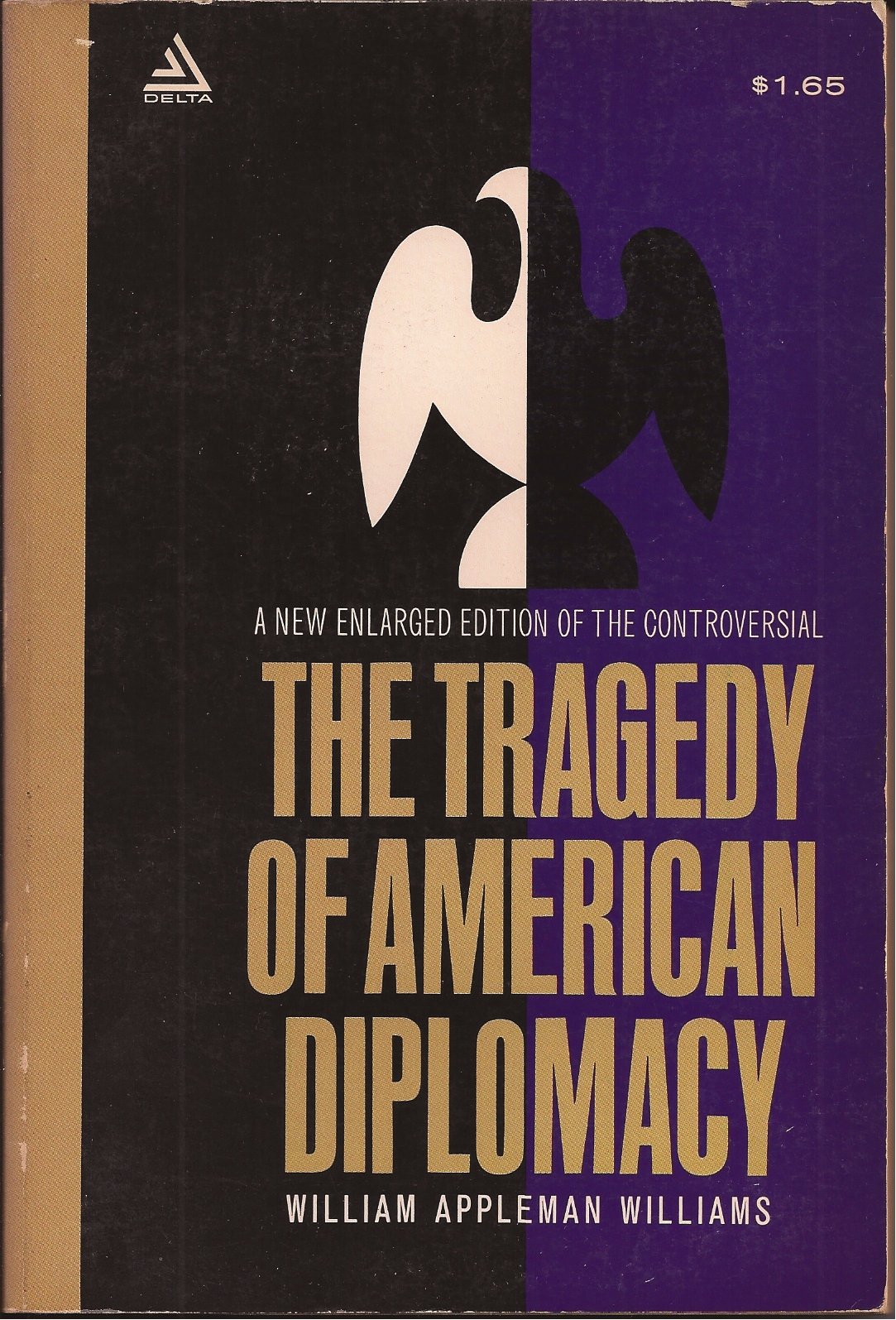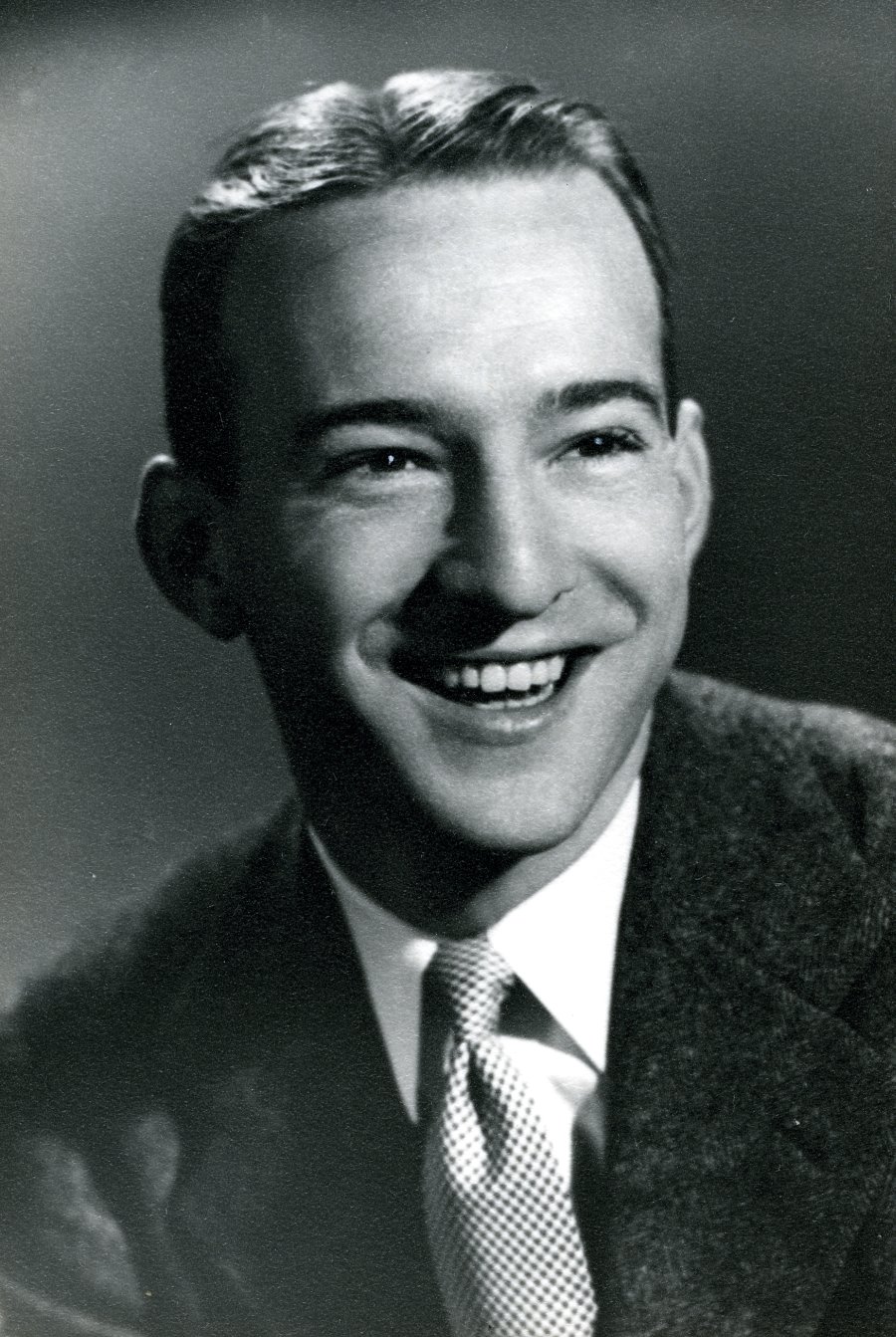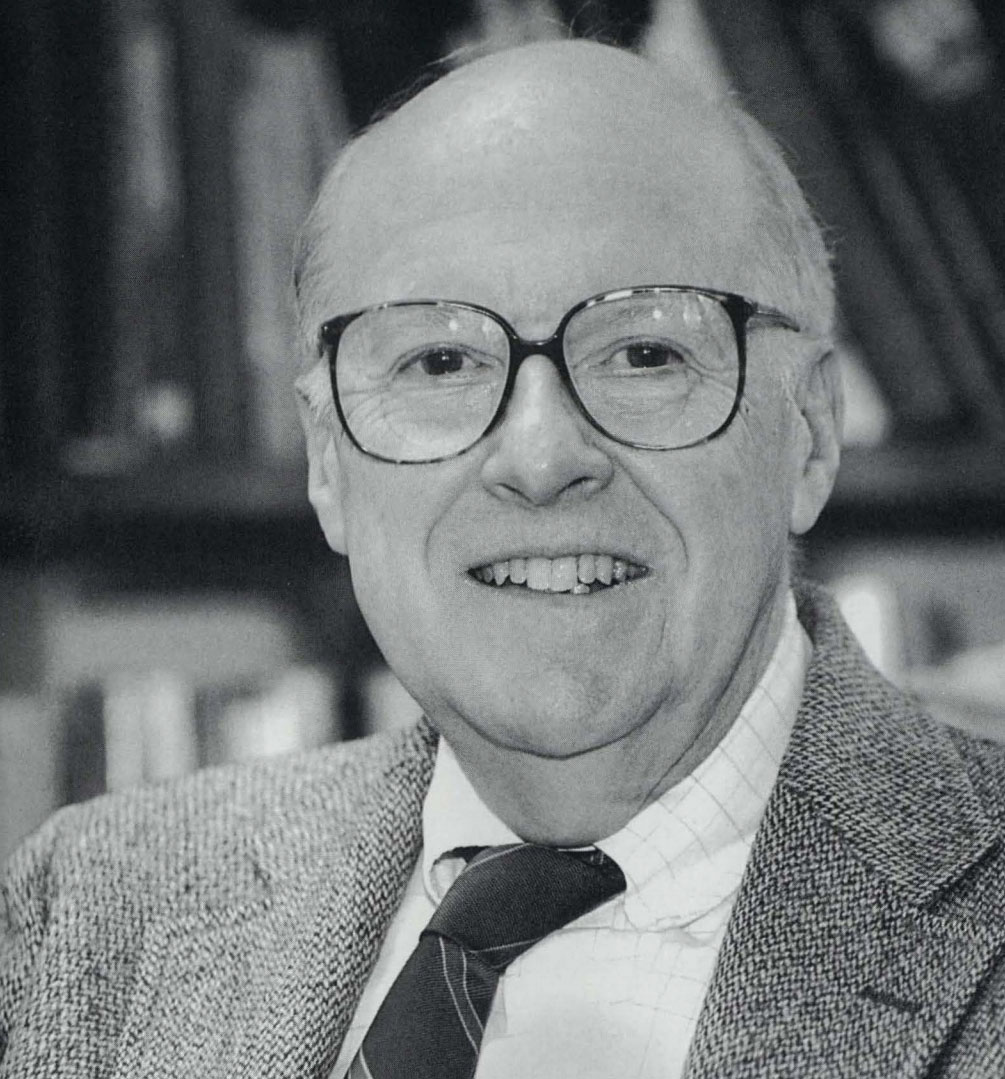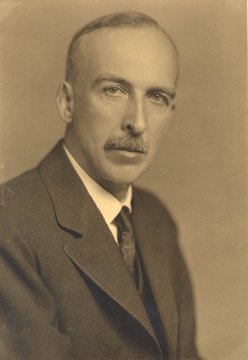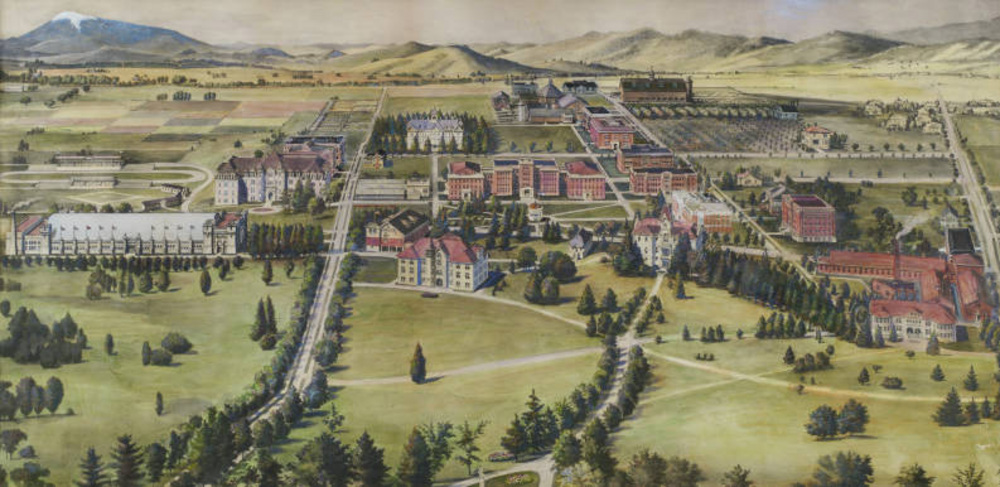William Appleman Williams was a prominent radical historian and a leading figure in what was called the revisionist school of historiography. While on the faculty at the University of Wisconsin, Madison, he published two classic reinterpretations of the United States’ rise to superpower status, The Tragedy of American Diplomacy (1959) and The Contours of American History (1961). In the late 1960s, at the height of his influence, he joined the faculty at Oregon State University, where he taught and wrote for eighteen years. He remained an Oregonian for the rest of his life.
Williams was born in Atlantic, Iowa, on June 12, 1921. A few months before his eighth birthday, his father, a U.S. Air Force pilot, was killed when his airplane crashed during a war games exercise. Williams was subsequently raised by his mother, with the assistance of a large extended family, an experience that helped instill in him a belief in what he later termed the “moral imperative” of community. An exceptional athlete, he graduated from high school in 1939 and attended the Kemper Military School in Booneville, Missouri, on a basketball scholarship. He also became passionately interested in the life of the mind.
In 1941, Williams received an appointment to the U.S. Naval Academy, where he studied the work of leading nineteenth- and early twentieth-century intellectuals, including Karl Marx, while also internalizing a military ethic that would deeply inform his sense of self. Though he would later sharply criticize the United States' application of military power, he stressed the importance of carrying oneself as "an officer of the line and a gentleman" dedicated to "honor, truth and impartial justice." He graduated from the Naval Academy in 1944 with a degree in electrical and thermodynamic engineering and was commissioned for wartime duty in the Pacific.
Near the end of World War II, Williams suffered a back injury and spent long stretches of the next two years in a hospital. For part of that time he was stationed in Corpus Christi, Texas, where he became aware of the racial divide that surrounded him. He devoted energy to civil rights causes, volunteering for a local chapter of the NAACP, assisting with efforts to strengthen voting rights for Black Americans and involving himself in the integration of naval flight lines. It was during this period, he later recalled, that he “consciously became a radical.”
Williams retired from the military in 1947 and enrolled as a graduate student in history at the University of Wisconsin, Madison. At the time, Wisconsin’s history program was steeped in the ideas of Charles Beard and other scholars who looked at historical evolution through the prism of economic forces. Williams applied that model in his master’s thesis (1948) and doctoral dissertation (1950), both of which examine topics in Russian American relations.
After teaching stints at four universities—including the University of Oregon—Williams joined the Wisconsin faculty in 1957. His scholarly profile began to skyrocket. In 1959, he published his best known work, The Tragedy of American Diplomacy, which situates American foreign policy in economic terms and describes the ways in which it had been used to access and then dominate world markets, often to tragic humanitarian effect. The book proved divisive for critics, but over time its relevance to the volatility of the 1960s came into view. In a 1972 survey of the Society for Historians of American Foreign Relations, Tragedy was identified more than any other scholarly book as having influenced the teaching of respondents.
In 1961, Williams published The Contours of American History, which chronicled the nation’s rise into what Williams described as an empire motivated by market forces. Many regard Contours as his magnum opus. In time, it was heralded as the book that most specifically initiated the debate over the value of so-called revisionist history. In 1999, the Modern Library cemented Contours' status by including the title on its list of the 100 Best Non-Fiction Books Written in English in the 20th Century.
Williams sent shockwaves through the academy in 1968 when he left the University of Wisconsin for a position at Oregon State University. Oregon State had no graduate program and had offered an undergraduate major in history for only seven years. For Williams, though, OSU’s proximity to the Pacific Ocean was more than enough to overcome its lean resources. For the entirety of his tenure at OSU, he would live on the Oregon Coast, first in Newport and later in Waldport, bussing to the Willamette Valley on his teaching days.
Until his retirement in 1986, Williams continued to pursue the lines of thought he had initiated at the University of Wisconsin and dug into the notion of community. In 1979, he was elected president of the Organization of American Historians, which gave him a platform to both advocate for and seek out more resources for historical research. He received an honorary doctorate from Columbia College in Chicago in 1984.
In the early 1980s, Williams wrote first for the Salem Statesman Journal and later the Portland Oregonian. In his weekly columns, he expounded on the need to retool a "tired and nostalgic" national culture while also expressing his fondness for the sensibilities of the American West. The column served as a forum for ideas that had become increasingly radical, including a call for the United States to be loosely administered through principles of "decentralized socialism." In his later years, he wrote a scholarly article on a 1913 shipwreck near Neahkahnie Mountain and created a course on "Comparative Maritime Cultures" at Oregon Coast Community College in Newport.
Williams died of cancer on March 5, 1990. He was survived by his third wife, Wendy Williams, and three children. A collection of his writing, The William Appleman Williams Reader, was released in 1992, and William Appleman Williams: The Tragedy of Empire, by Paul M. Buhle and Edward Rice-Maximen, was published in 1995.
-
![]()
William A. Williams.
Courtesy Oregon State University -
![]()
"The Tragedy of American Diplomacy," by William Appleman Williams, 1962.
Courtesy Delta Publishing
-
![]()
William A., Williams, c. 1940s.
Courtesy Oregon State University
Related Entries
-
![Dorothy Olga Johansen (1904-1999)]()
Dorothy Olga Johansen (1904-1999)
Dorothy Olga Johansen was a prominent Pacific Northwest historian and e…
-
![Earl S. Pomeroy (1915–2005)]()
Earl S. Pomeroy (1915–2005)
Western historian Earl Pomeroy was a longtime professor at the Universi…
-
![Gordon B. Dodds (1932-2003)]()
Gordon B. Dodds (1932-2003)
Gordon Barlow Dodds, professor of history at Portland State University …
-
![Henry Davidson Sheldon (1874-1948)]()
Henry Davidson Sheldon (1874-1948)
Henry Davidson Sheldon, professor of education and history and dean of …
-
![Oregon State University]()
Oregon State University
Oregon State University (OSU) traces its roots to 1856, when Corvallis …
Map This on the Oregon History WayFinder
The Oregon History Wayfinder is an interactive map that identifies significant places, people, and events in Oregon history.
Further Reading
Buhle, Paul M., and Edward Rice-Maximin. William Appleman Williams: The Tragedy of Empire, by . New York: Routledge, 1995.
William Appleman Williams Papers, Special Collections and Archives Research Center, Oregon State University Libraries, Corvallis.
"A Remembrance of William Appleman Williams." Oral history interview conducted with Bill Robbins by Chris Petersen, March 27, 2017. Oregon State University Libraries, Corvallis.


